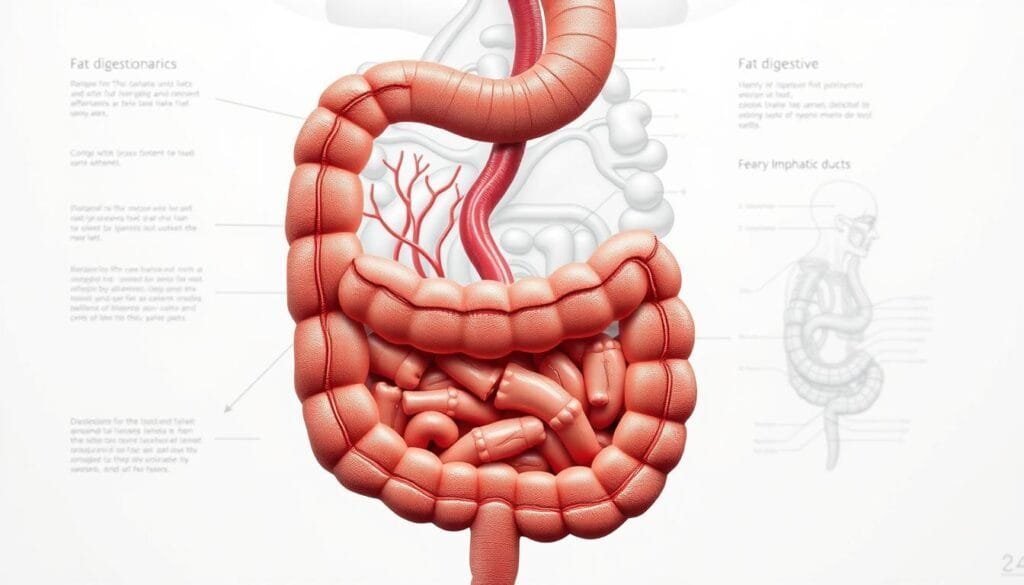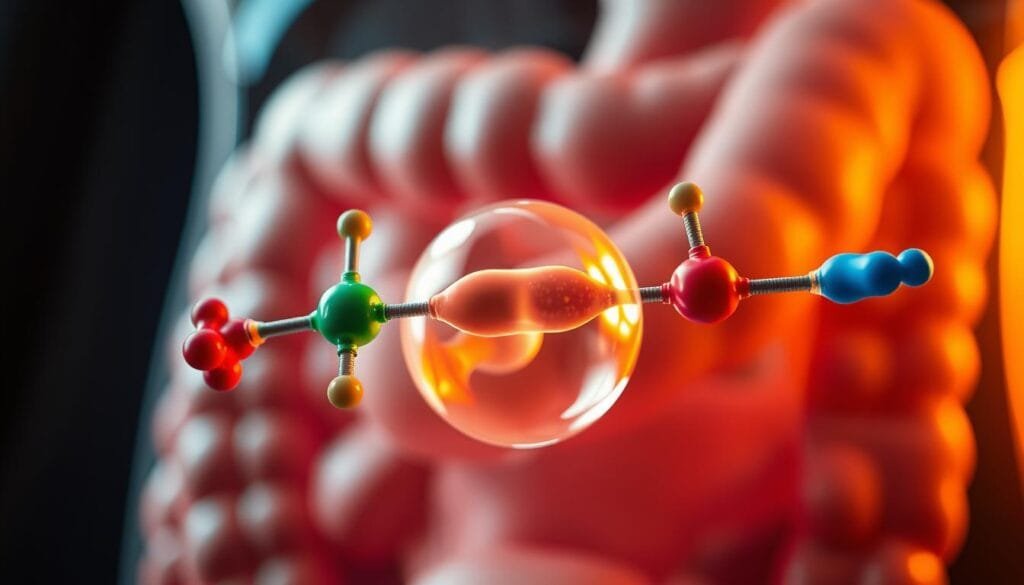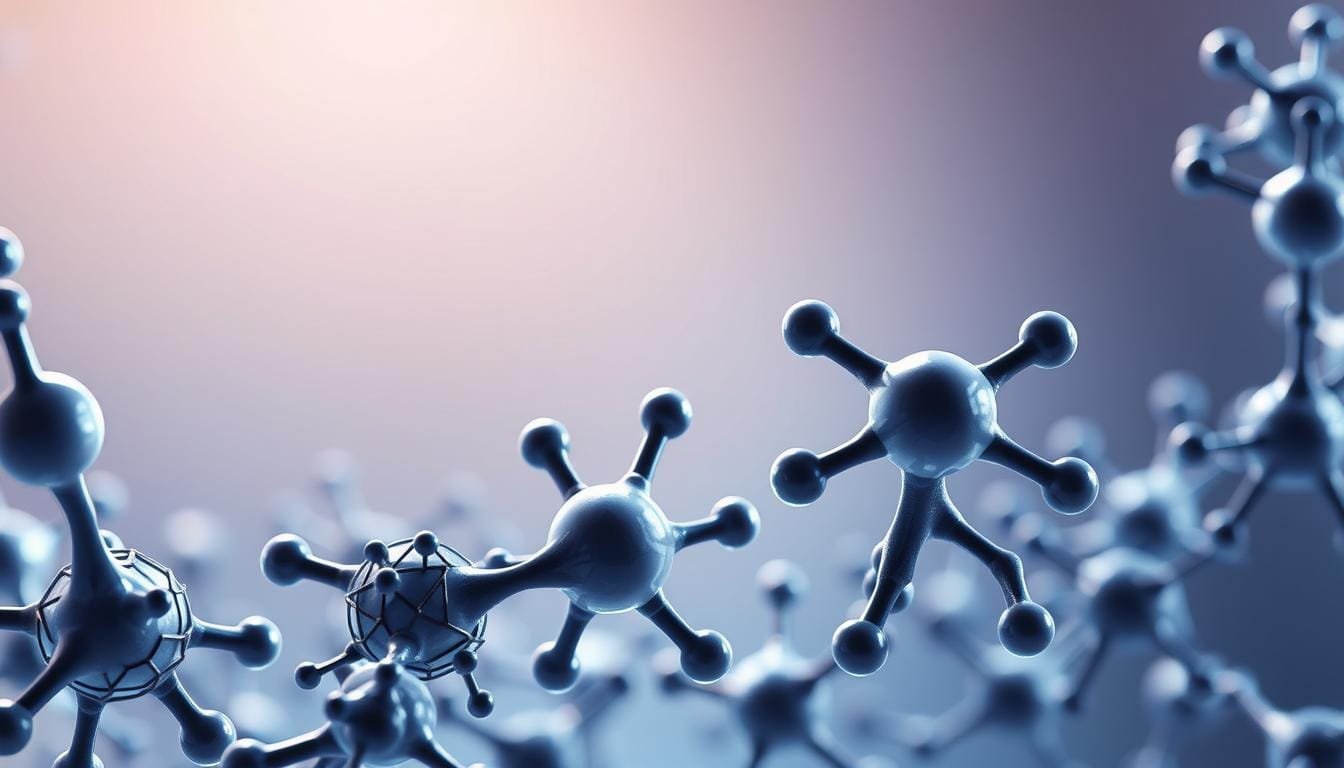Currently Empty: RM0.00
Could a natural enzyme hold the key to better digestion and a healthier body? Many people wonder if digestive enzymes, like lipase, play a role in managing body composition. While science explores this connection, Wellness Concept offers expert guidance on enzyme supplements and their potential benefits.
Lipase breaks down fats, aiding nutrient absorption. Some studies suggest it may support metabolic functions, but results vary. Wellness Concept provides trusted advice on digestive health, helping individuals make informed choices.
Need personalized recommendations? Reach out via WhatsApp +60123822655. Their team is available Mon-Fri (9:30am-6:30pm) and Sat-Sun (10am-5pm).
Key Takeaways
- Lipase assists in fat breakdown, but its direct impact on body composition remains debated.
- Digestive enzymes may improve nutrient absorption and gut health.
- Scientific opinions differ on whether enzymes block or enhance fat processing.
- Wellness Concept offers reliable insights on enzyme-based supplements.
- Extended support hours ensure accessibility for consultations.
Introduction to Lipase and Weight Loss
The link between fat metabolism and digestive health has sparked curiosity about enzyme supplements. Many wonder if these natural compounds can optimize how the body processes food, especially fats.
Enzymes like lipase break down dietary fats into smaller molecules for absorption. While they’re essential for digestion, their direct impact on body composition remains debated. Some studies suggest improved nutrient uptake, but results vary.
Common myths label enzyme supplements as “quick fixes.” However, they’re tools—not magic solutions. A balanced diet and active lifestyle remain foundational.
Emerging research highlights the gut microbiome’s role in weight control. A healthy gut may enhance metabolic efficiency, making enzyme support a potential ally.
Wellness Concept emphasizes evidence-based approaches. Their team helps individuals choose supplements wisely, avoiding hype. For personalized advice, contact them via WhatsApp +60123822655.
- Enzymes aid digestion but aren’t standalone weight-loss solutions.
- Lipase targets fat breakdown, supporting nutrient absorption.
- Gut health and metabolism are closely intertwined.
- Professional guidance ensures safe, effective supplement use.
What Is Lipase?
The pancreas naturally produces enzymes essential for efficient digestion. Among them, lipase stands out as the primary enzyme responsible for breaking down dietary fats into absorbable fatty acids and glycerol.
Definition and Function
Lipase ensures fats are properly digested, preventing discomfort like bloating. Without enough of this enzyme, the body struggles to absorb fat-soluble vitamins (A, D, E, K), leading to deficiencies.
Types of Digestive Enzymes
Three core enzymes work together to process food:
- Protease: Breaks down proteins into amino acids.
- Amylase: Converts carbohydrates into simple sugars.
- Lipase: Focuses exclusively on fat molecules.
Supplements may derive from animal sources (like porcine pancreas) or microbial fermentation. Wellness Concept offers vegan-friendly options, ideal for diverse dietary preferences.
“Enzyme supplements support digestion but aren’t a cure-all. Pair them with a balanced diet for best results.”
For those exploring enzyme support, consulting experts ensures safe choices. Contact Wellness Concept via WhatsApp +60123822655 for tailored advice.
How Lipase Works in Digestion
From the first bite to nutrient absorption, enzymes like lipase guide fat breakdown. This intricate process ensures fats fuel the body efficiently. Here’s how it unfolds.
The Digestive Process
Digestion begins in the mouth, where chewing mixes food with saliva. Fats reach the stomach largely intact until bile and pancreatic enzymes take over. Lipase activates in the small intestine, splitting fats into glycerol and fatty acids.

Bile acids emulsify fats, increasing lipase’s efficiency. Without enough enzymes, bloating or nutrient deficiencies may occur. For example, low lipase levels hinder vitamin A, D, E, and K uptake.
Absorption of Fats
Normally, broken-down fats enter intestinal cells for energy or storage. However, enzyme deficiencies slow this process, leading to malabsorption. Paradoxically, excessive lipase activity might boost calorie absorption.
| Scenario | Fat Absorption | Key Factors |
|---|---|---|
| Normal | Efficient | Balanced enzymes + bile |
| Deficiency | Reduced | Low lipase, poor emulsification |
| Inhibitors (e.g., orlistat) | ↓30% | Blocked enzyme activity |
Studies show lipase inhibitors like orlistat reduce fat absorption by 30%. This highlights enzymes’ role in managing fat intake. For tailored advice, consult Wellness Concept via WhatsApp +60123822655.
Does Lipase Help Weight Loss?
The relationship between fat-digesting enzymes and body changes presents an interesting scientific puzzle. While these enzyme supplements improve fat breakdown, they don’t directly target stored fat. This creates a paradox for those seeking metabolic solutions.
Animal studies reveal unexpected effects. Mice given extra enzymes showed 23% less post-meal fullness signals, potentially leading to increased eating. This suggests enhanced digestion might reduce natural satiety cues in the body.
Medical approaches take opposite directions. Doctors prescribe lipase inhibitors like orlistat to block fat absorption, while OTC supplements aim to improve it. The table below highlights key differences:
| Approach | Mechanism | Fat Processing | Common Use |
|---|---|---|---|
| Prescription Inhibitors | Blocks enzyme activity | ↓30% absorption | Clinically supervised weight management |
| Enzyme Supplements | Boosts digestion | ↑ Nutrient uptake | Digestive support |
“Unregulated ‘fat-burning enzymes’ often lack proper testing. Always verify third-party certification before use.”
The FDA doesn’t evaluate many over-the-counter enzyme products. Some make unsupported claims about reshaping physique without evidence. Wellness Concept recommends professional guidance for safe supplementation.
For personalized advice on metabolic support, message their experts via WhatsApp +60123822655. Their team helps navigate the complex world of digestive health solutions.
Scientific Evidence on Lipase and Weight
Science continues to explore whether enzymes influence body composition through digestion. While some studies suggest a link, others highlight inconsistencies. This section examines the latest findings.
Studies Supporting Lipase’s Role
A 2021 review found that enzyme supplements may alter gut bacteria tied to lower BMI. Animal trials showed modified microbiomes correlated with improved metabolic health.
However, most evidence comes from lab models. Human trials remain limited, focusing on digestion rather than fat loss. Wellness Concept prioritizes third-party tested formulas to ensure reliability.
Contradictory Findings
Johns Hopkins research found no direct enzyme-weight loss link in healthy individuals. Some human data even suggests enhanced digestion might reduce satiety signals, potentially increasing calorie intake.
| Study Type | Key Finding | Limitations |
|---|---|---|
| Animal Models | Gut microbiome changes | Not directly applicable to humans |
| Human Trials | Mixed satiety hormone effects | Small sample sizes |
“Enzyme supplements support digestion, but their metabolic impact requires more rigorous human trials.”
For personalized guidance on enzyme supplements, contact Wellness Concept via WhatsApp +60123822655. Their team translates complex research into practical advice.
Enzyme Inhibitors vs. Weight Loss
Medical science offers two opposing strategies for managing fat digestion—enhancing it or blocking it completely. While enzyme supplements aim to improve breakdown, prescription inhibitors like orlistat work in reverse. This section explores their mechanisms, outcomes, and ethical considerations.

How Inhibitors Work
Pancreatic enzyme inhibitors, such as orlistat, bind to lipase in the gut. This prevents fat molecules from breaking down, reducing calorie absorption by ~30%. Unlike supplements, these drugs are FDA-approved for clinical weight management.
Effectiveness and Side Effects
Studies show inhibitors lead to 3–5% greater body changes than placebos. However, 30% of users experience side effects like oily stools, diarrhea, or vitamin deficiencies due to malabsorption.
| Approach | Mechanism | Pros | Cons |
|---|---|---|---|
| Prescription Inhibitors | Blocks enzyme activity | Clinically proven | GI discomfort, nutrient loss |
| OTC “Fat Blockers” | Unregulated claims | Widely available | Lacks evidence, risky |
“Unverified over-the-counter inhibitors often overpromise. Always consult a healthcare provider before use.”
Wellness Concept adheres to evidence-based practices, avoiding unregulated products. For safe guidance on metabolic support, message them via WhatsApp +60123822655.
Best Types of Digestive Enzyme Supplements
Choosing the right enzyme supplements can make a big difference in digestive health. Quality formulas combine key ingredients like lipase, protease, and amylase for complete nutrient breakdown. Not all products are created equal, so knowing what to look for helps avoid ineffective options.
Key Ingredients to Look For
Effective blends contain multiple enzymes that target different food groups. Look for these essential components:
- Lipase (10,000-20,000 LU per dose): Breaks down fats into absorbable fatty acids.
- Protease: Helps digest proteins, reducing bloating after meals.
- Amylase: Converts carbs into simple sugars for energy.
- Lactase: Supports dairy digestion for those with intolerance.
- Alpha-galactosidase: Aids in breaking down beans and cruciferous veggies.
USP-certified products ensure potency and purity. Avoid supplements with unnecessary fillers like magnesium stearate or artificial colors. Wellness Concept offers third-party tested formulas for reliable results.
Vegan and Microbial Options
For those avoiding animal products, microbial enzymes derived from fungi or bacteria provide excellent alternatives. These vegan options work well for people with pancreatitis or pork allergies.
“Plant-based enzymes often have broader pH tolerance, making them effective throughout the digestive tract.”
Porcine-derived enzymes may be more potent but aren’t suitable for all diets. Wellness Concept’s allergen-free formulations cater to diverse needs without compromising quality.
For personalized recommendations on enzyme supplements, contact Wellness Concept via WhatsApp +60123822655. Their team helps select the right blend for individual digestive needs.
When to Consider Digestive Enzyme Supplements
Persistent digestive discomfort may signal an underlying enzyme imbalance. While occasional bloating is normal, recurring issues like oily stools or cramps could indicate a deeper problem. Recognizing these signs early helps address deficiencies before they impact overall health.
Signs of Enzyme Deficiency
The body sends clear signals when it struggles to digest fats. Key symptoms include:
- Steatorrhea (pale, foul-smelling stools that float).
- Unexplained weight loss despite adequate calorie intake.
- Chronic bloating or gas after meals.
- Nutrient deficiencies (e.g., low vitamin D or K levels).
These issues often stem from conditions like pancreatitis or cystic fibrosis. A healthcare provider can confirm with tests like fecal elastase or blood panels.
Consulting a Healthcare Provider
Self-diagnosing enzyme deficiencies risks overlooking serious conditions. For example, chronic pancreatitis requires medical management, not just supplements. Professionals may recommend:
- Imaging scans to check pancreatic health.
- Stool tests to measure enzyme levels.
- Dietary adjustments paired with targeted supplements.
“Unchecked symptoms like persistent diarrhea can lead to dehydration. Always seek expert evaluation first.”
Wellness Concept’s pharmacists offer personalized consultations via WhatsApp +60123822655. Their team helps interpret symptoms and guides safe supplement use.
Conclusion
Understanding digestive enzymes requires balancing science with realistic expectations. While they aid fat breakdown, they aren’t shortcuts for reshaping physique. Misusing them for unintended goals may disrupt natural health rhythms.
Wellness Concept champions evidence-based solutions. Their team helps navigate supplements safely, ensuring choices align with individual needs. A balanced diet and active lifestyle remain foundational.
For personalized advice, reach their experts via WhatsApp +60123822655. Operating hours: Mon–Fri (9:30am–6:30pm), Sat–Sun (10am–5pm).
FAQ
What is lipase and how does it work in the body?
Lipase is an enzyme produced by the pancreas that helps break down fats into smaller molecules for absorption. It plays a key role in digestion, ensuring fats from food are properly processed and utilized by the body.
Can taking lipase supplements improve digestion?
Yes, supplements containing this enzyme may support digestion, especially for those with deficiencies or conditions like pancreatitis. However, results vary, and it’s best to consult a doctor before use.
Are there any side effects of using lipase supplements?
Some people may experience bloating, gas, or stomach discomfort. High doses could lead to diarrhea. Always follow recommended dosages and check with a healthcare provider.
Do digestive enzymes like lipase actually help with fat loss?
While they aid in breaking down fats, there’s limited evidence that they directly cause weight reduction. A balanced diet and exercise remain the most effective strategies.
Who might benefit from taking lipase supplements?
Individuals with pancreatic insufficiency, irritable bowel syndrome (IBS), or chronic digestive issues may find relief. Always seek medical advice before starting any new supplement.
What foods naturally contain lipase?
Avocados, fermented foods like sauerkraut, and certain dairy products have natural enzymes. Including these in your diet may support healthy digestion.
How do enzyme inhibitors affect weight management?
Some inhibitors block fat absorption, which may lead to temporary weight changes. However, long-term effects and safety concerns require further research.
What should I look for in a quality digestive enzyme supplement?
Opt for products with amylase, protease, and lipase. Vegan or microbial-based options are great for those with dietary restrictions.



